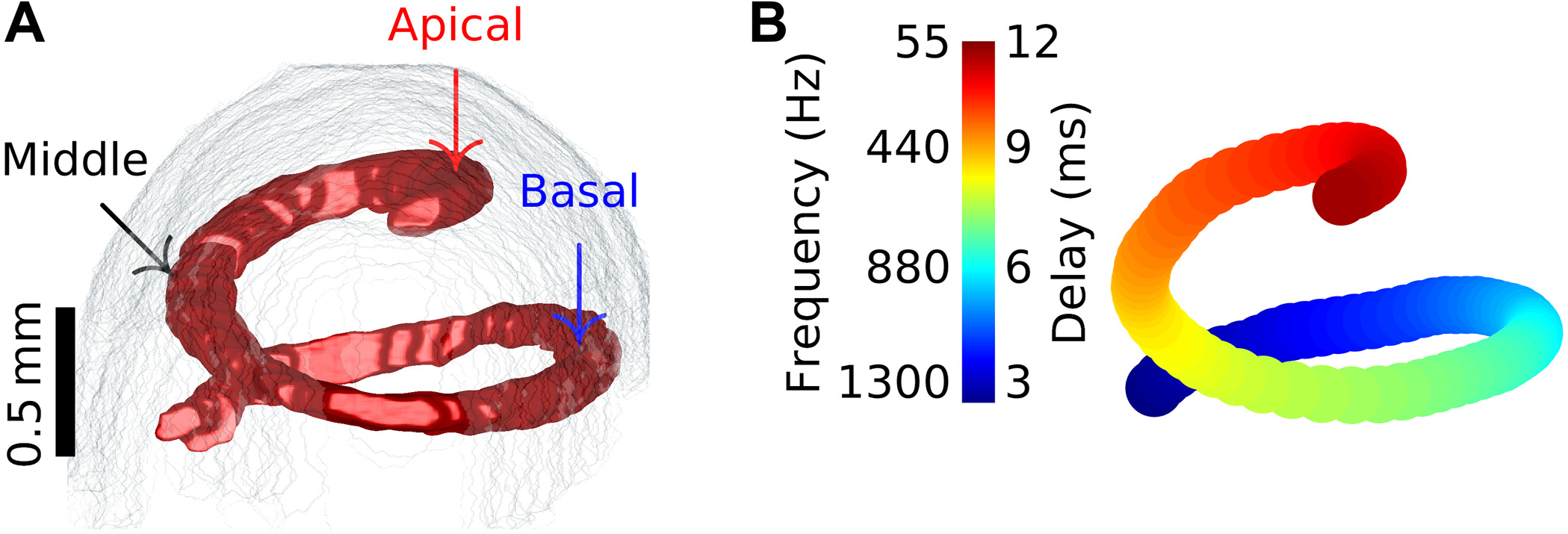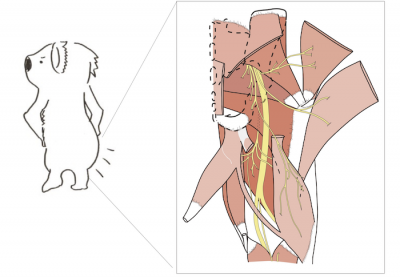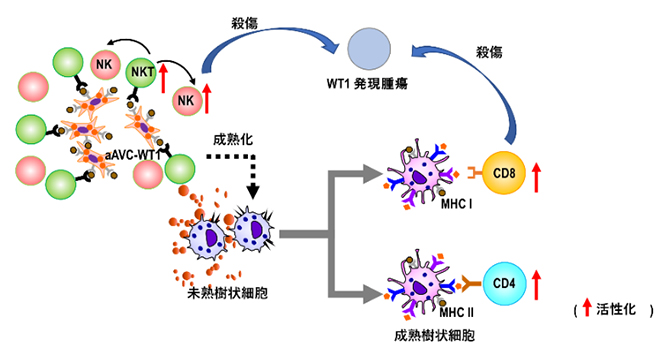私たちが音楽や音声を感じる仕組みは、これまで考えられてきたものとは異なります。この新しい発見は、より良い人工内耳の設計を可能にするもので、Science Advances誌に掲載されました。 The way in which we experience music and speech differs from what has until now been believed. These new findings have been published in Science Advances, and may make it possible to design better cochlear implants.
2022-09-23 スウェーデン・リンショーピング大学
聴覚システムがこのような構造になっていることで、一部の感覚細胞が損傷しても、脳に神経インパルスを送ることができる他の多くの感覚細胞が残っている。
低周波領域には、人間の話し声の母音だけでなく、音楽を構成する音の多くも存在する。例えば、ピアノのMiddle Cの周波数は262Hzである。
現在の人工内耳の設計は、各電極が特定の周波数のみを神経刺激することを前提としており、聴覚システムの機能について信じられていたことを模倣しようとする方法だが、研究者は、低周波の刺激方法を変えることで、より自然な刺激に近くなり、ユーザーの聴覚体験が改善されることを提案している。
今回の成果は、低周波領域での聴力が人間と似ているモルモットの蝸牛を使った実験から得られたものである。
<関連情報>
- https://liu.se/en/news-item/forskning-slar-hal-pa-gammal-bild-av-hur-var-horsel-fungerar
- https://www.science.org/doi/10.1126/sciadv.abq2773
モルモット蝸牛の低周波領域では、最良周波数と時間遅延が類似している Best frequencies and temporal delays are similar across the low-frequency regions of the guinea pig cochlea
George Burwood ,Pierre Hakizimana ,Alfred L Nuttall* ,Anders Fridberger
Science Advances Published:23 Sep 2022
DOI: 10.1126/sciadv.abq2773

Abstract
The cochlea maps tones with different frequencies to distinct anatomical locations. For instance, a faint 5000-hertz tone produces brisk responses at a place approximately 8 millimeters into the 18-millimeter-long guinea pig cochlea, but little response elsewhere. This place code pervades the auditory pathways, where neurons have “best frequencies” determined by their connections to the sensory cells in the hearing organ. However, frequency selectivity in cochlear regions encoding low-frequency sounds has not been systematically studied. Here, we show that low-frequency hearing works according to a unique principle that does not involve a place code. Instead, sound-evoked responses and temporal delays are similar across the low-frequency regions of the cochlea. These findings are a break from theories considered proven for 100 years and have broad implications for understanding information processing in the brainstem and cortex and for optimizing the stimulus delivery in auditory implants.


